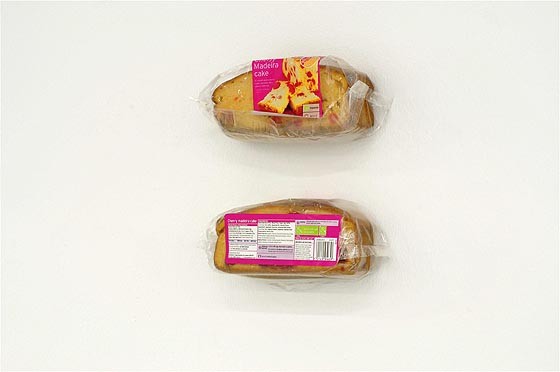Schnecke, Vogel, Katze und Qualle
12 - 29 Mar 2008
SCHNECKE, VOGEL, KATZE UND QUALLE
Wolfgang Breuer
Kerstin Cmelka
Tom Humphreys
Kim Nekarda
The exhibition "Schnecke, Vogel, Katze und Qualle", the first one in the redesigned spaces, is the beginning of a two-part exhibition series with works by young artists who predominantly live in Berlin.
The at-first-glance strongly divergent artistic practice of the individuals does not here require the brackets of proximity of generation or location, the unfolding play of possible connections takes place in the work and between observers themselves.
Small, subversive gestures of quiet poetry with minimal means, located close to the limits of perception and subtle, surreal (re-)arrangements in urban space of what is found on the spot and immediately used characterise the work of Wolfgang Breuer. In the process urbanistic problems receive unusual, artistic commentaries and immediately bring about interuptive, reflexive distancings in public space perceived as dominated by economics.
The many-layered, multimedia re-stagings of historical material from film, art and theatre by Kerstin Cmelka and the intelligently evoked breaks, overlaps and shifts in them leave postmodern genre death certifications out in the cold. Make culture as a whole conceivable not as a monotonous, critical accumulation of discourses or signs but as an active area of enthusiasm of acceleratable thought rhythms in the flow of the present.
The sculptural play with formal references and their autonomy, both rich in allusions and diverse, as well as the fine shave of the British artist Tom Humphreys on the dichotomy of form and content, does not search for the point in formalistic effect itself; rather the viewing of his work firstly appears successful in the moment of self-reflection in aesthetic experience.
The observer's dissatisfying feeling of being cheated of the important visual information to understand the content of the picture or to have approached the picture only shortly before or after the decisive scene for the narrative denouement is fuelled by the painting of Kim Nekarda, which adds appealing food for thought of another illusion - in fact, with painting, despite technological inferiority, still to be confronted with a more knowing medium.
Wolfgang Breuer
Kerstin Cmelka
Tom Humphreys
Kim Nekarda
The exhibition "Schnecke, Vogel, Katze und Qualle", the first one in the redesigned spaces, is the beginning of a two-part exhibition series with works by young artists who predominantly live in Berlin.
The at-first-glance strongly divergent artistic practice of the individuals does not here require the brackets of proximity of generation or location, the unfolding play of possible connections takes place in the work and between observers themselves.
Small, subversive gestures of quiet poetry with minimal means, located close to the limits of perception and subtle, surreal (re-)arrangements in urban space of what is found on the spot and immediately used characterise the work of Wolfgang Breuer. In the process urbanistic problems receive unusual, artistic commentaries and immediately bring about interuptive, reflexive distancings in public space perceived as dominated by economics.
The many-layered, multimedia re-stagings of historical material from film, art and theatre by Kerstin Cmelka and the intelligently evoked breaks, overlaps and shifts in them leave postmodern genre death certifications out in the cold. Make culture as a whole conceivable not as a monotonous, critical accumulation of discourses or signs but as an active area of enthusiasm of acceleratable thought rhythms in the flow of the present.
The sculptural play with formal references and their autonomy, both rich in allusions and diverse, as well as the fine shave of the British artist Tom Humphreys on the dichotomy of form and content, does not search for the point in formalistic effect itself; rather the viewing of his work firstly appears successful in the moment of self-reflection in aesthetic experience.
The observer's dissatisfying feeling of being cheated of the important visual information to understand the content of the picture or to have approached the picture only shortly before or after the decisive scene for the narrative denouement is fuelled by the painting of Kim Nekarda, which adds appealing food for thought of another illusion - in fact, with painting, despite technological inferiority, still to be confronted with a more knowing medium.

